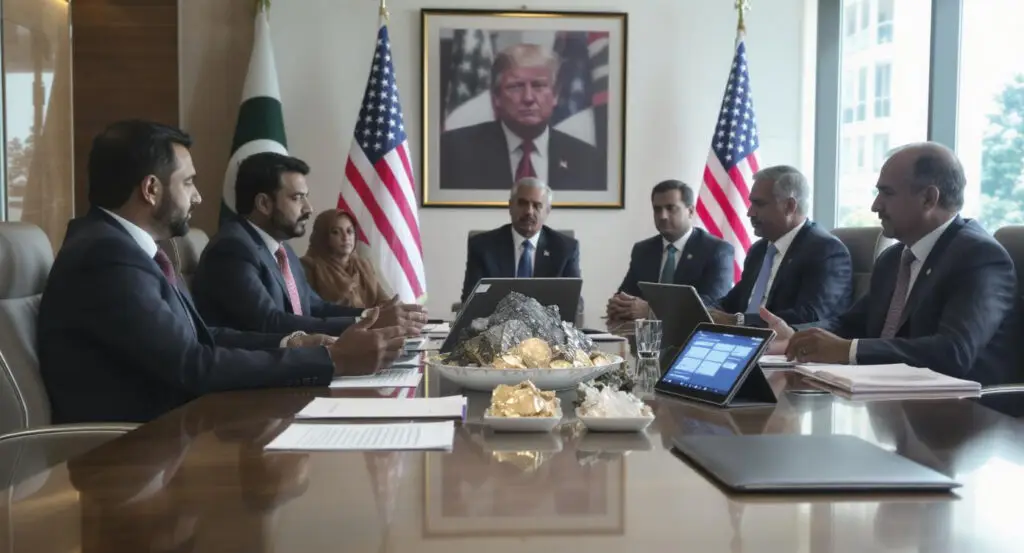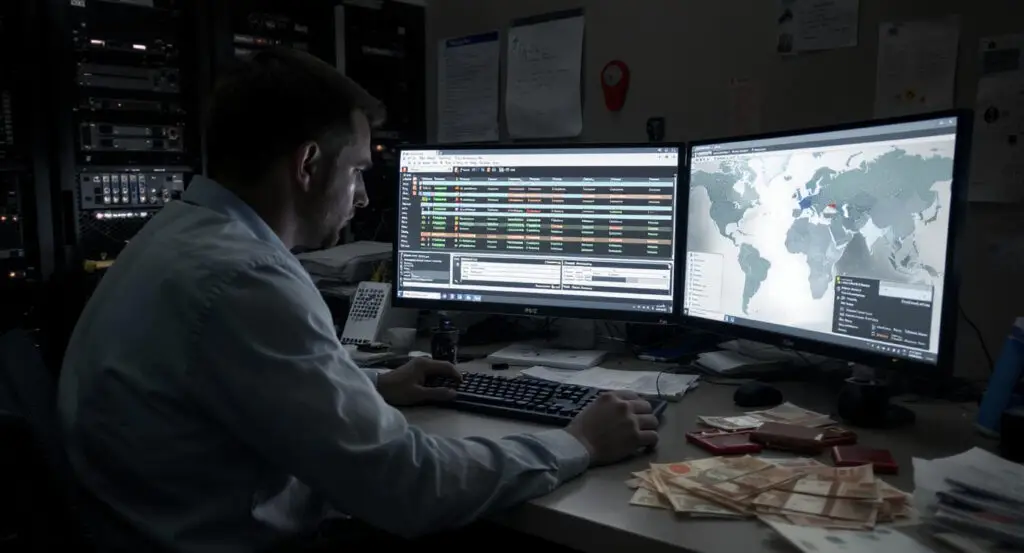A Strategic Diplomatic Offensive
Cash-strapped Pakistan is embarking on a highly strategic and unconventional diplomatic offensive aimed squarely at the White House, specifically targeting Donald Trump. Islamabad’s multi-pronged approach involves pitching itself as a burgeoning Bitcoin mining hub, a significant source of critical rare earth minerals, and even offering its support for a Nobel Peace Prize nomination for the former U.S. President. This audacious charm offensive is driven by a pressing need to stave off hefty trade tariffs that could severely impact its economy and to deepen vital ties with the United States, its largest export partner. The move highlights Pakistan’s innovative, albeit unusual, efforts to secure its economic future and geopolitical standing.
Battling Economic Headwinds: The Tariff Threat
At the heart of Pakistan’s diplomatic push is an urgent battle being waged by its finance ministry to secure a crucial trade deal with the United States. The specter of impending trade tariffs looms large, with potential duties on Pakistani exports threatening to escalate as high as 29 percent by July 9. Given that the U.S. accounts for a fifth of Pakistan’s total exports, particularly its significant garments manufacturing sector, such tariffs could cripple the nation’s already long-troubled economy. Averting this economic blow is paramount, making the current negotiations in Washington D.C. a high-stakes affair for Islamabad’s financial stability and its ability to manage mounting public debts.
Leveraging Trump’s Interests: Crypto and Minerals
Pakistan’s strategy is designed to directly appeal to Donald Trump‘s known interests and priorities. According to officials in Islamabad and various analysts, the hope is that by promoting its potential in cryptocurrency mining and critical mineral extraction, alongside the symbolic gesture of a Nobel Peace Prize nomination, Pakistan can gain favor with the U.S. president. Michael Kugelman, a senior fellow at the Asia Pacific Foundation of Canada, noted, “Pakistan has been quite smart about getting the administration’s attention, capitalizing on its broader global interests in crypto and critical minerals and pitching its own offerings.” This tailored approach demonstrates a keen understanding of the political landscape in Washington.
High-Stakes Talks in Washington
Pakistan’s negotiating team, notably including its crypto minister, arrived in Washington on Monday for critical talks with U.S. Trade Representative Jamieson Greer. These discussions are expected to cover a wide array of potential agreements. Pakistani officials have indicated that any prospective deal could encompass commitments to purchase U.S.-origin cotton and soybeans, a move that would benefit American agricultural sectors. Furthermore, a significant component of the proposed agreement involves a “strategic and investment” partnership in Pakistan’s mining sector, signaling a long-term commitment to resource development. While the White House has declined to comment, Pakistani officials had initially harbored hopes for a deal to materialize as early as this week.
The Army Chief’s Charm Offensive
The diplomatic efforts extend beyond civilian channels. General Asim Munir, Pakistan’s powerful army chief, played a crucial role in this charm offensive. Last month, Munir discussed trade and Pakistan’s potential for mining Bitcoin and rare earth minerals during a lunch meeting with Donald Trump. Official readouts of the meeting confirmed these discussions, and sources close to the matter even suggested that Munir was presented with a “Maga hat” and a key to the White House – symbolic gestures indicating a warm reception. This meeting was the culmination of months of concerted efforts to court investors and businesspeople with close ties to the former U.S. president, aiming to build influential relationships.
Pakistan’s Crypto Ambition: A Strategic Reserve
A cornerstone of Pakistan’s economic pitch is its ambitious plan to position itself as a major player in the cryptocurrency space. Officials have announced intentions to create a “strategic” Bitcoin reserve, explicitly modeled on the one established by Donald Trump in March. Furthermore, Pakistan plans to allocate a substantial 2,000 megawatts of electricity specifically towards cryptocurrency mining operations. This commitment underscores a serious intent to integrate crypto into its national economic strategy, viewing it as a pathway to attract fresh investment, employ its burgeoning youth population, and ultimately alleviate its mounting public debts. This bold move is supported by recent regulatory developments. In February, Pakistan launched a dedicated crypto council to regulate blockchain and digital assets, and in April, it appointed former Binance CEO Changpeng Zhao as a strategic adviser on crypto regulation. Zhao, who recently served time in jail in the U.S. for failing to establish proper money laundering controls, is reportedly seeking a pardon from Trump, adding another layer of intrigue to Pakistan’s crypto diplomacy. In May, Pakistan’s finance ministry further solidified its commitment by announcing the creation of a digital assets authority to “regulate blockchain-based financial infrastructure.”
Unlocking Mineral Wealth: Trillions Beneath the Surface
Beyond crypto, Pakistan is actively promoting its vast, untapped mineral wealth, particularly in its volatile western provinces. General Munir has directly called on U.S. investors to help Pakistan access what officials claim are trillions of dollars worth of rare earth minerals. Robert Seiden, a New York-based lawyer lobbying for Pakistan, confirmed ongoing talks between Washington and Islamabad to draft a comprehensive mineral deal. U.S. government officials are reportedly keen on Pakistan’s reserves of antimony, a critical mineral used in flame retardants and batteries. Zach Witkoff, son of Trump envoy Steve Witkoff and a founder of the Trump-backed crypto group World Liberty Financial, highlighted the potential during an April trip to Lahore, stating, “You guys are sitting on trillions of dollars of rare earth minerals right now. By tokenizing them, you can actually make it a liquid market and you can bring enormous wealth to the youth of this country.”
A Foothold in Trump’s Washington: The Long Game
Pakistan’s multi-faceted pitches on crypto and mining represent more than just immediate economic relief; they offer Islamabad “a way to gain a foothold in Trump’s Washington, to keep Pakistan on the radar and open up opportunities for future discussions,” as noted by Michael Kugelman. The signing of a “letter of intent” with the founders of World Liberty Financial to cooperate on blockchain and stablecoin adoption, including Zach Witkoff, further solidifies these connections. Bilal bin Saqib, Pakistan’s crypto minister and an adviser to WLF, has been actively engaged in crypto diplomacy, even telling a Las Vegas audience that he wanted to recognize Donald Trump for “being the president who saved crypto.” Saqib’s subsequent visits to the White House and meetings with influential figures underscore the strategic importance Pakistan places on these relationships. Ultimately, this proactive engagement is allowing Pakistan to rebrand itself as a “builder — not just beneficiary — in the global innovation ecosystem,” a crucial step in its long-term strategic and economic aspirations.























